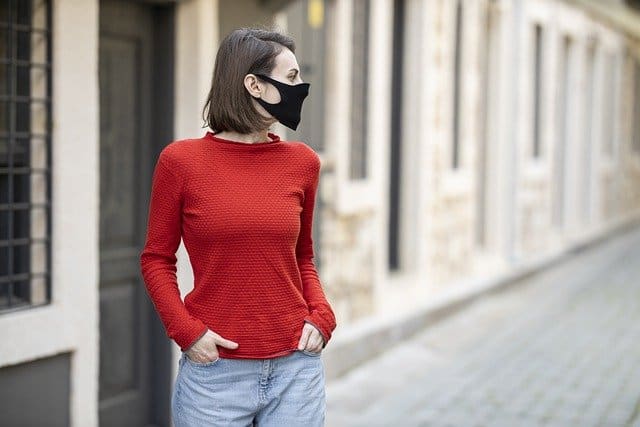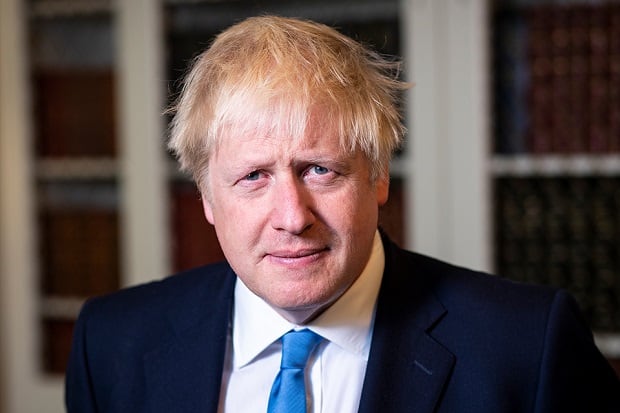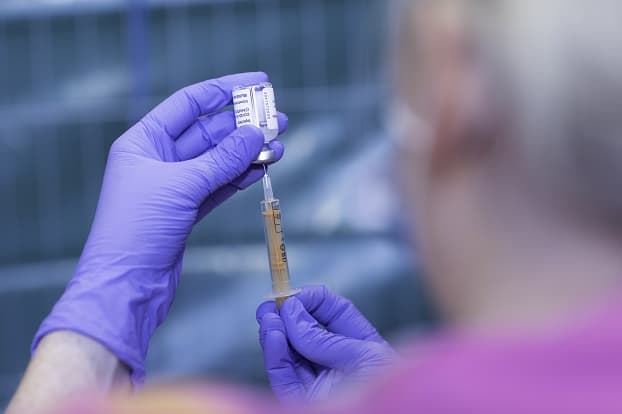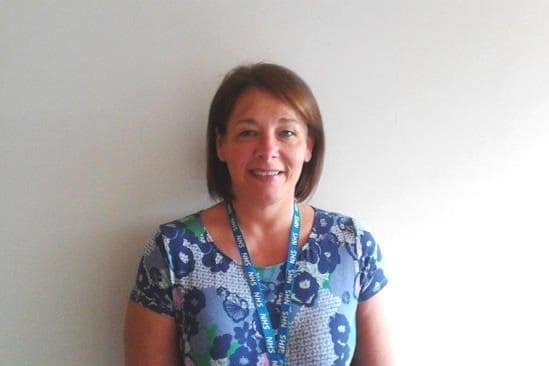
Prime Minister Boris Johnson has announced a move to Plan B covid restrictions due to the growth of the Omicron variant.
The announcement, which comes alongside furore over an apparent Christmas party at Number 10 last year despite stringent restrictions on the country, means the reintroduction of guidance to work from home as from Monday.
From this Friday (December 10) there will be an extension to the legal requirement to wear a face mask to most public indoor venues, including theatres and cinemas.
There will be exemptions where it is not practical, such as when eating, drinking, exercising or singing, said the PM.
From Wednesday 15 December, and subject to parliamentary approval, the NHS Covid Pass is also to be mandatory for entry into nightclubs, and venues where large crowds gather including unseated indoor venues with more than 500 people, unseated outdoor venues with more than 4,000 people and any venue with more than 10,000 people.
The NHS Covid Pass can be obtained with two doses but this will be kept under review as the boosters roll out.

The PM said: “We do not yet know Omicron’s severity, its exact rate of transmission, nor indeed the full effectiveness of our vaccines against it.
“But since I last spoke to you, it’s become increasingly clear that Omicron is growing much faster than the previous Delta variant, and it’s spreading rapidly all around the world.
“568 cases have been confirmed through genomic sequencing across every region of the UK, and the true number is certain to be much higher.
“Most worryingly, there is evidence that the doubling time of Omicron in the UK could currently be between two and three days.”
He added: “As we set out in Plan B, we will give businesses a week’s notice, so this will come into force in a week’s time, helping to keep these events and venues open at full capacity, while giving everyone who attends them confidence that those around them have done the responsible thing to minimise risk to others.
“As Omicron spreads in the community, we will also introduce daily tests for contacts instead of isolation, so we keep people safe while minimising the disruption to daily life.
“And of course we will take every step to ensure our NHS is ready for the challenges ahead. But the single biggest thing that every one of us can do, is to get our jabs and crucially to get that booster as soon as our turn arrives.”

Today marks one year since the UK administered the first covid vaccine dose. This was followed by the programme for second doses and now for boosters.
Great-grandad Kenneth Lamb was the first patient in Kent and Medway to have the vaccination against Covid-19. Now, 365 days later, more than three million vaccinations have been given in the county.
The rollout involved a huge effort from GPs, community pharmacies, NHS providers including Kent & Medway NHS, and volunteers.
So far that has resulted in vaccinations of 83 per cent of people with a first dose, 92 per cent of eligible groups with a second dose and more than 500,000 booster doses to date.
Since 15 December 2020, to-date, GPs have given more than 1.8 million doses to people across Kent and Medway, including those in care homes and people who are housebound.
An army of volunteers has given up time to help make sure people have had access to the Covid-19 vaccine, including those at the Saga centre in Ramsgate.

NHS Kent and Medway Clinical Commissioning Group’s Chief Nurse Paula Wilkins said: “The Covid-19 vaccine rollout has been the biggest vaccine programme in NHS history.
“The past year has tested us all to our limit, but particularly my NHS colleagues across Kent and Medway. We’ve had to plan and manage a service and teams had to hit the ground running and be able to plan and implement the programme in ever changing conditions.
“I think everyone involved in the vaccination programme can look back at the past year and be very proud of the work that they have done.’’
Latest statistics for Kent and Medway show:
- 3,145,664 total doses, of which 497,554 are third booster doses.
- 93 per cent of cohorts 1-9 have had two doses.
- 74 per cent of those eligible have had their booster.
- 69 per cent of everyone over 18 has had two doses.
- 62 per cent of 16 to 17-year-olds have had one dose.
- 46 per cent of 12 to 15-year-olds have had one dose.
Thanet
The seven day rolling infection rate up until December 3 stands at 522.4 per 100,000, taking Thanet over the national average. The UK average is 488.2.
First dose – 106,591
Second dose – 97,950
Booster- 53,217

